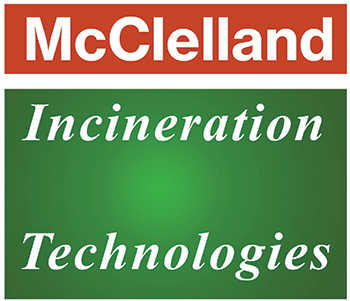 The landscape of waste management is undergoing a significant transformation worldwide. As urban populations swell and consumption patterns evolve, the challenge of municipal and industrial waste disposal has escalated, pushing traditional landfilling to its limits. Globally, there’s a discernible shift towards more sustainable and resource-efficient solutions, with advanced incineration, particularly Waste-to-Energy (WtE) technologies, playing an increasingly pivotal role. This global evolution is not happening in isolation; international collaborations are proving instrumental in shaping India’s approach to waste management, driving innovation and sustainability.
The landscape of waste management is undergoing a significant transformation worldwide. As urban populations swell and consumption patterns evolve, the challenge of municipal and industrial waste disposal has escalated, pushing traditional landfilling to its limits. Globally, there’s a discernible shift towards more sustainable and resource-efficient solutions, with advanced incineration, particularly Waste-to-Energy (WtE) technologies, playing an increasingly pivotal role. This global evolution is not happening in isolation; international collaborations are proving instrumental in shaping India’s approach to waste management, driving innovation and sustainability.
The Global Push Towards Waste-to-Energy
Developed nations, particularly in Europe, Japan, and parts of North America, have long embraced WtE incineration as a core component of their integrated waste management strategies. The trend is clear: move waste away from landfills, recover energy, and drastically reduce volume. Modern incinerators are engineered with cutting-edge combustion technologies and multi-stage air pollution control systems (APCS) that ensure minimal emissions, often meeting, or even exceeding, stringent environmental standards. This global paradigm shift is increasingly influencing developing economies, including India, to re-evaluate their waste disposal methodologies.
International Collaborations: A Catalyst for Change in India
India faces a formidable waste management challenge, driven by rapid urbanization, burgeoning waste volumes, and a critical shortage of suitable landfill sites. Simultaneously, the nation’s growing energy demand presents an opportunity to harness waste as a valuable resource. It is in this context that international collaborations are becoming a powerful catalyst for change.
These collaborations manifest in various forms:
Technology Transfer: Partnerships with countries possessing mature WtE markets facilitate the transfer of advanced incinerator designs, superior APCS technologies, and efficient operational know-how. This allows India to leapfrog technological development phases.
Funding and Investment: International financial institutions (like the World Bank, Asian Development Bank, or Japan International Cooperation Agency) and bilateral agreements provide crucial funding and expertise for large-scale WtE projects in India, often de-risking investments and attracting private sector participation.
Policy and Regulatory Frameworks: Exposure to global best practices influences the development of more robust and comprehensive waste management policies and environmental regulations within India, pushing for higher standards in emission control and waste processing.
Expertise Sharing and Capacity Building: Collaborations bring in international experts who share knowledge on project planning, waste characterization, plant operation, maintenance, and workforce training, building local capacities.
The impact of these collaborations is evident in several operational and upcoming WtE projects across India, which increasingly incorporate advanced technologies and emission controls seen in international counterparts, helping to address challenges like high moisture content in Indian waste.
Mc Clelland Engineers: Adapting Global Trends for Indian Solutions
At Mc Clelland Engineers Pvt. Ltd., we recognize the dynamic nature of global waste management and the critical role international trends play in shaping India’s future. As a leading incinerator manufacturer since 1985, we are committed to integrating the latest technological advancements and best practices from around the world into our advanced incineration and thermal desorption systems. Our expertise allows us to engineer high-performance solutions that align with global standards for efficiency and environmental responsibility, tailored to the unique characteristics of Indian waste streams. You can explore our robust and reliable incinerator solutions by visiting our official website, https://mcclellandindia.com/.
We continuously monitor global innovations in combustion technology, energy recovery, and advanced air pollution control, ensuring that our systems are not only compliant with current Indian regulations but are also future-ready. Our long-standing experience and commitment to quality position us to partner in India’s journey towards sustainable waste management, effectively converting waste into valuable resources. Discover more about our manufacturing capabilities and product range that meet international standards at https://incineratormanufacturer.com/.
Shaping India’s Sustainable Waste Future
The convergence of global incineration trends with strategic international collaborations is undeniably shaping India’s waste management future. By embracing advanced Waste-to-Energy solutions and leveraging global expertise, India is poised to transform its waste challenge into an opportunity for sustainable development, cleaner cities, and a more secure energy future.


